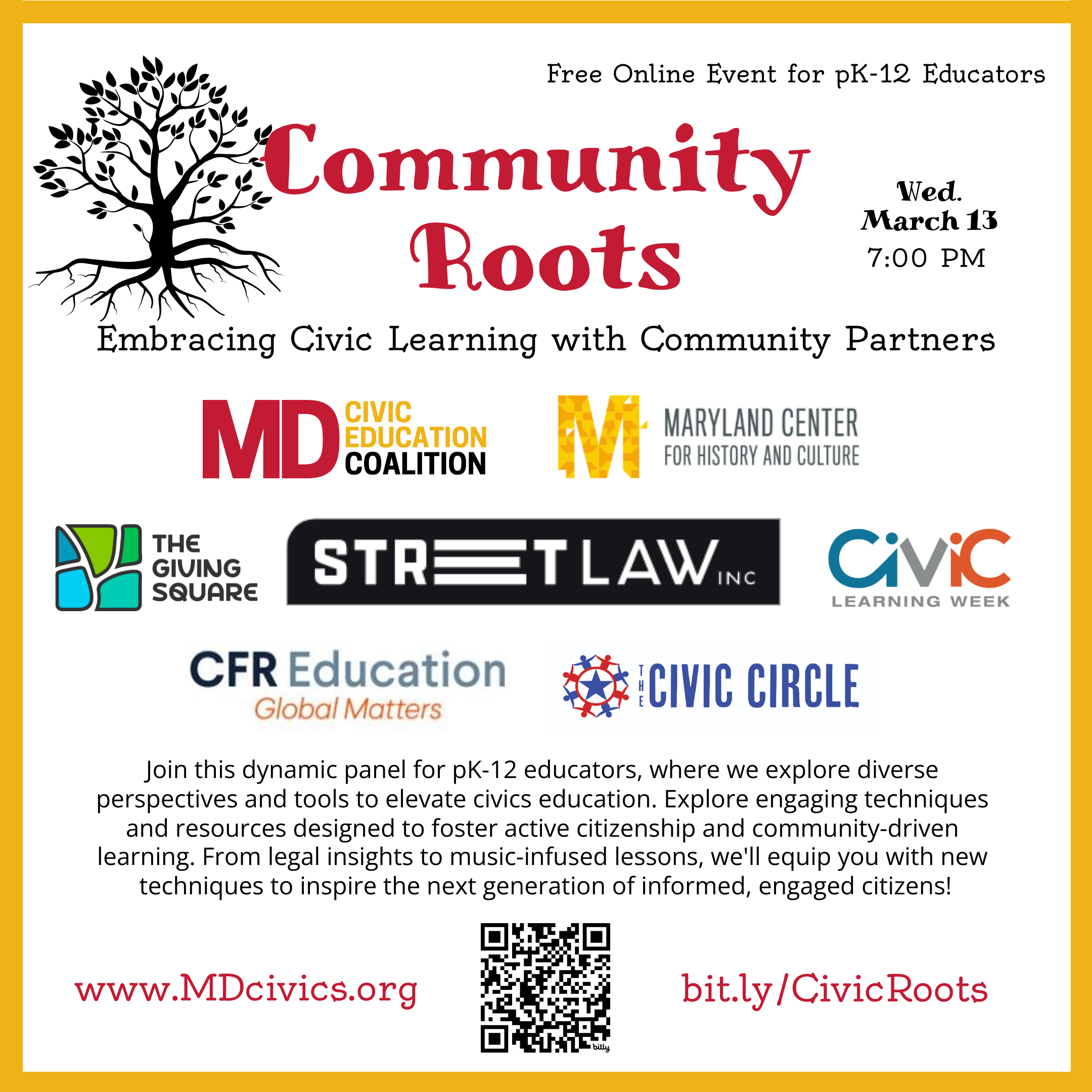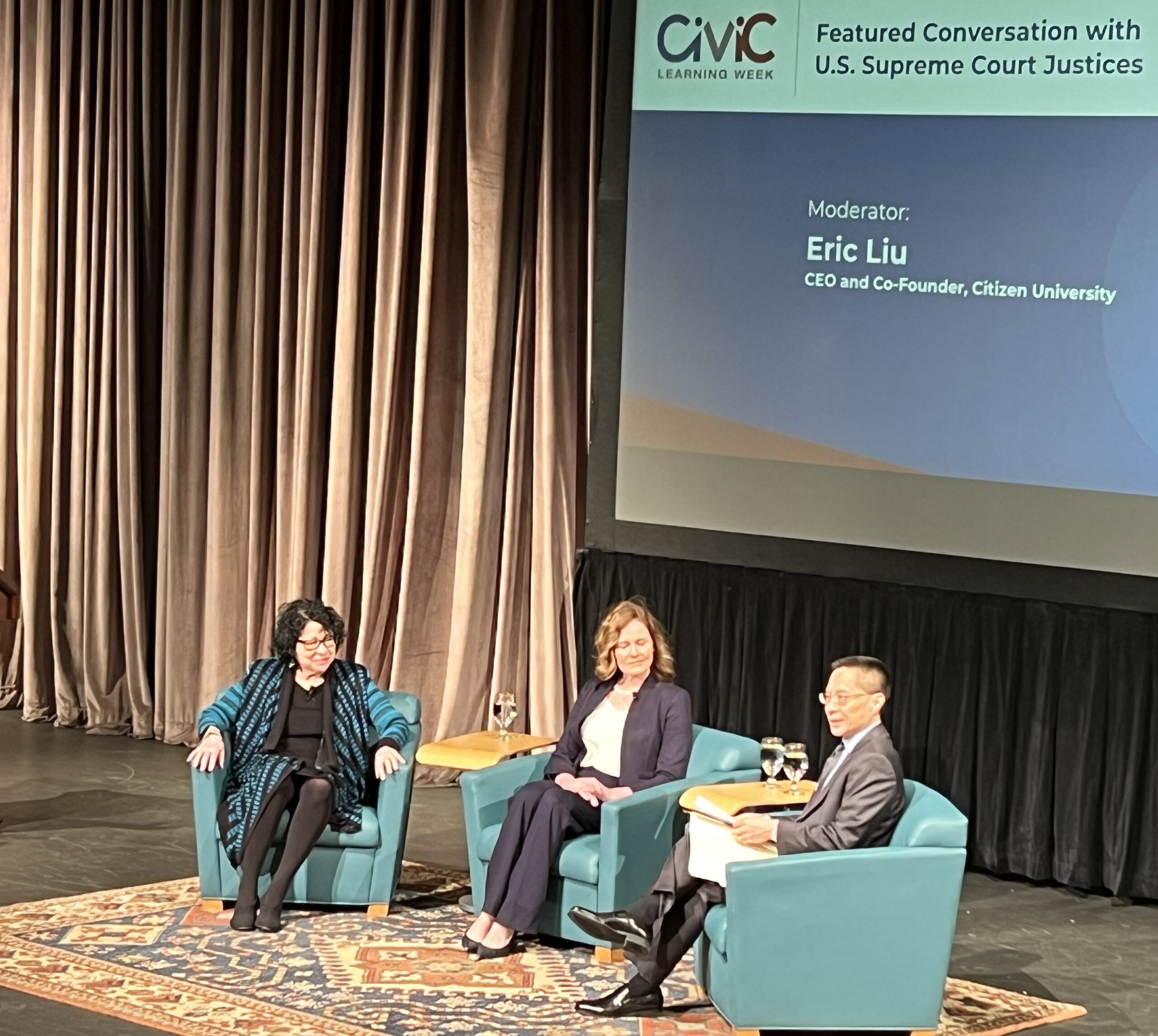CIVIC LEARNING WEEK launched March 11 and continues through March 15, and The Civic Circle is honored to participate in the Maryland Civic Education Coalition’s free, virtual panel for pK-12 educators today (March 13) at 7 p.m. Titled "Community Roots: Embracing Civic Learning with Community Partners," the panel will spotlight fresh tools and approaches to civic learning in a lively discussion format. In addition to The Civic Circle, participating coalition members will include the Council on Foreign Relations-Education, The Giving Square, the Maryland Center for History & Culture, and StreetLaw. Sign up HERE, or scan the QR code below. Hope to see you there!

A highlight was the Featured Conversation with U.S. Supreme Court Justices Sonia Sotomayor and Amy Coney Barrett, moderated by Citizen University’s Eric Liu. Barrett offered one of the forum's biggest surprises—that the Supreme Court is perhaps the most civil institution in public life: “We do not interrupt one another, and we do not raise voices.” And if things do get heated, she added, the Justices encourage one another to apologize. (Who knew.)
Many of the day’s remarks made a compelling case for The Civic Circle’s mission to leverage the arts to lift student voices and teach real-world skills—our seven “steps to democracy.” The first of these is conflict resolution (Listen!), and as Middlebury College President Laurie L. Patton told the audience: having “the tools to manage conflict is a fundamental bedrock of a democracy.” Noorya Hayat, a senior researcher at Tufts University’s Tisch College, shared research showing that high-quality high school civics—particularly if it elevates student voices—predicts voting (Choose!) as a lifelong adult habit: “Student voice directly predicts civic engagement and likelihood to vote.” And information literacy (Learn!) should be integrated into every subject area, experts discussing disinformation agreed. As Stanford University’s Sam Wineburg noted, as little as six hours of instruction has been shown to nearly double students’ ability to make wise choices when faced with conflicting digital information. Watch the forum’s morning plenaries HERE.

CIVIC LEARNING IS NOT JUST FOR KIDS, and this is a great year for civic resolutions. As I wrote recently in The Fulcrum, “civic life is a muscle, and you can resolve to strengthen it every day — just as you might set out to practice a sport or a musical instrument.” You, too, can Listen, Learn, Choose, Join, Speak, Act and Lead—just like the students in Civic Circle workshops. You can’t wave a magic wand to solve the troubles of the world, but you can stop interrupting, subscribe to a local paper, vote in elections, and volunteer in your community: “Democracy is not some far-off realm presided over by experts, politicians and activists. It is something we practice every day, in our ongoing interactions with those around us, in the choices we make about what to read or watch, and how we spend our time.” Read the whole article HERE.
